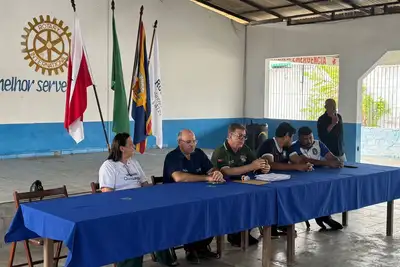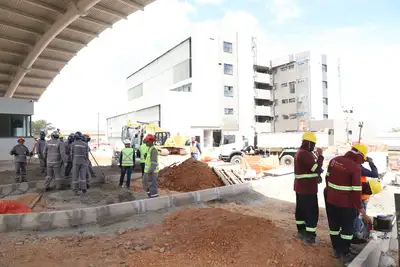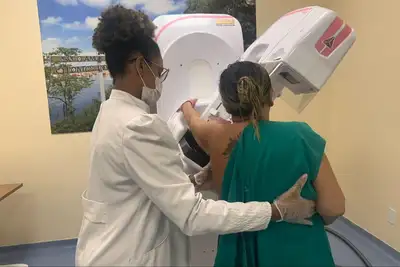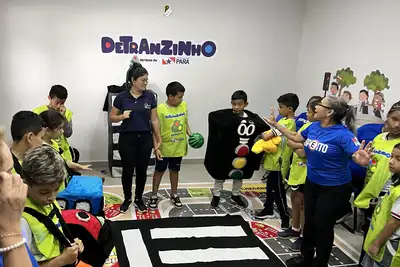'Kangaroo Method' strengthens bond with premature baby at the Transamazon Regional Hospital
The strategy allows skin-to-skin contact, which helps in the recovery of premature infants at the largest public health unit in the region
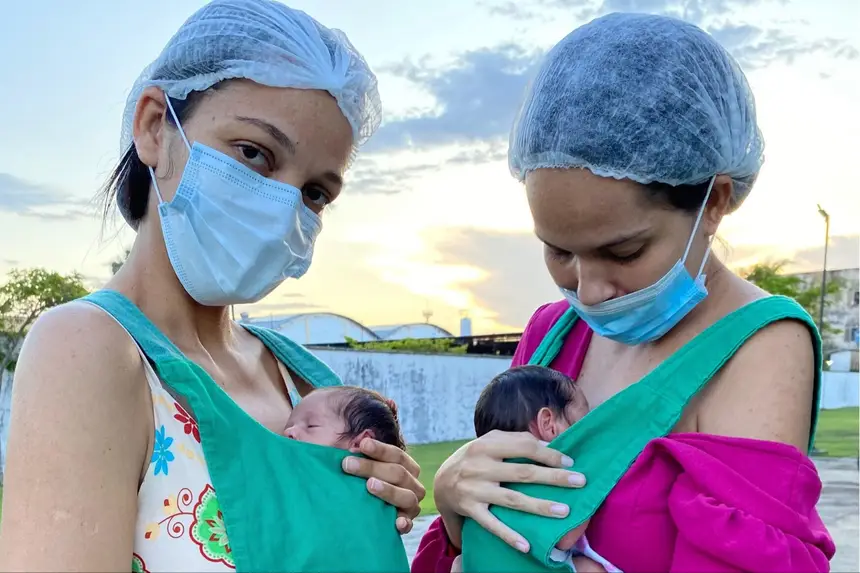
A national reference in the care of newborns and premature infants, the Transamazon Regional Public Hospital (HRPT), in Altamira, western Pará, also stands out for the humanized service available for mothers and babies who need to be admitted to the Intensive Care Unit (ICU) of the largest hospital in the region. One of the projects that provide this differentiated care is the "Kangaroo Method," which consists of placing the baby in the mother's lap, allowing for body contact and strengthening the bond between them.
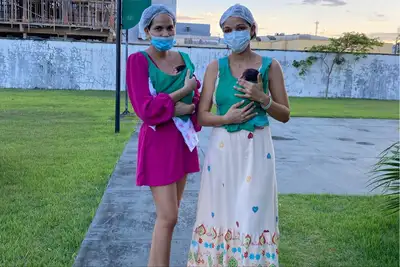
“It is important for the child to have contact with the mother because it feels like being still inside the belly. I went through a process where I learned to hold my daughter, to feel her. It was something surreal,” said Larissa Farias, mother of Laura Vitória, who was born at 7 months and spent more than three weeks at the Transamazon Hospital.
Due to her prematurity, Laura Vitória started treatment in an incubator, where she received care and feeding through a tube. Since the girl was weakened, Larissa could only hold her daughter more than a week after the birth. “That was when she had contact with me, and I tried to breastfeed,” she recounted.
Welcoming - The "Kangaroo Method" was gradually introduced in the unit, always with the support of a multidisciplinary team. The girl's first outing outside the hospital was on August 30, when Laura was ready to be discharged. “The care at the Regional Hospital was a second experience because I felt safe due to my baby being born prematurely. They are people like angels that God sent. All the mothers who go through the ICU of the Regional Hospital know how it is. I felt embraced, welcomed. On the tough days when I thought I wouldn’t leave the hospital with my daughter, I was welcomed, as if I had a second family. I can only be grateful,” added Larissa, who returned to Porto de Moz (a municipality in the Xingu Integration Region), where she now enjoys every minute with her daughter, healthy and thriving.

Deeny Kelly also had to wait more than a week to hold Ravi. The boy was born just over 7 months and went straight to the Neonatal ICU, where he received specialized care. Deeny was not familiar with the "Kangaroo Method," but considers the sensation it provides to be "unique." “For me, it was a wonderful moment when I could hold my son in my arms with the 'Kangaroo Method,' when the child has contact with the mother. For me, it was wonderful,” she added.
Nutrition and trust - Among the benefits of the Method, according to the Ministry of Health, is the production of milk, which decreases when contact between mother and newborn has to be interrupted due to complications of prematurity. The "Kangaroo Method" can also be applied with the father, resulting in greater trust and mutual affection transfer.
Responsible for the Nursery and the Neonatal and Pediatric ICUs, nurse Cleiton Rodrigues explained that the Transamazon Regional Hospital encourages the practice and, when the child is in condition, is released for walks in the garden. The goal, according to the professional, is to “link the manual of good practices of the Kangaroo Method” to a humanized approach for low birth weight newborns admitted to the unit. “It also aims to promote skin-to-skin contact, ensuring that the family is involved in the care, strengthening the bonds,” emphasized the nurse.
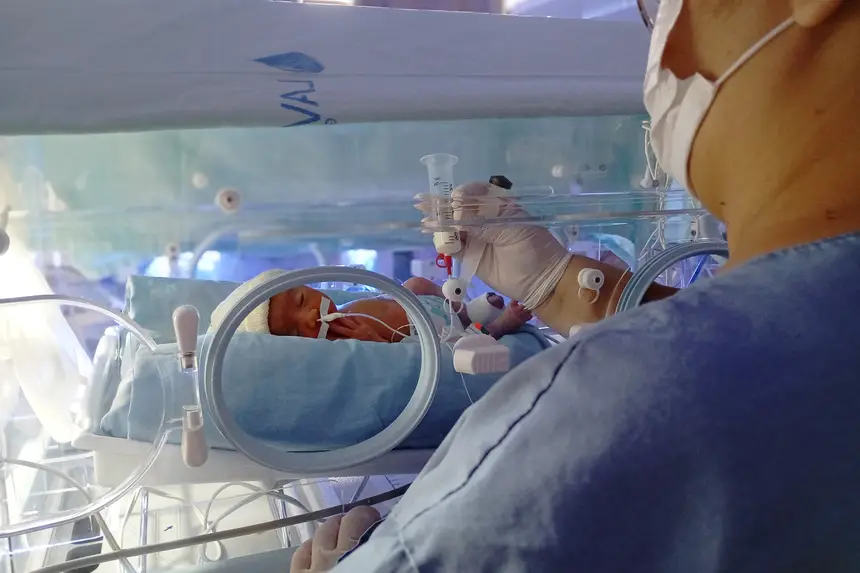
All of this contributes to a faster recovery and is part of public policies for humanized hospital care, Cleiton Rodrigues informed, adding that “the method also aids in the neurodevelopment of the baby.”
In Altamira, the "Kangaroo Method" was implemented this year by the Transamazon Regional Hospital, where about 10 premature and extremely premature infants are admitted every month. The outings are conducted on days with lower flow, such as Saturdays, Sundays, and holidays, so that the mother can have a more cozy and calm environment to dedicate all her attention to the baby.
Main benefits of the "Kangaroo Method," according to the Ministry of Health:
- Reduce the time of separation between mother/father and child;
- Favor the emotional bond between mother/father and child;
- Enable greater competence and confidence of parents in caring for the child, even after hospital discharge;
- Stimulate breastfeeding, allowing for greater frequency, precocity, and duration;
- Enable the newborn to have adequate thermal control;
- Contribute to reducing the risk of hospital infection;
- Reduce stress and pain;
- Provide better family relationships with the health team;
- Favor the newborn with protective sensory stimulation regarding its overall development, and
- Improve the quality of neuropsychomotor development.
In most cases, prematurity can reveal signs even before the child is born, which is why prenatal care is important from the moment pregnancy is discovered, making it easier to make decisions about which procedures will be adopted by the team that accompanies the pregnant woman, including the "Kangaroo Method."
Text: Rômulo D’Castro - Ascom/HRPT


